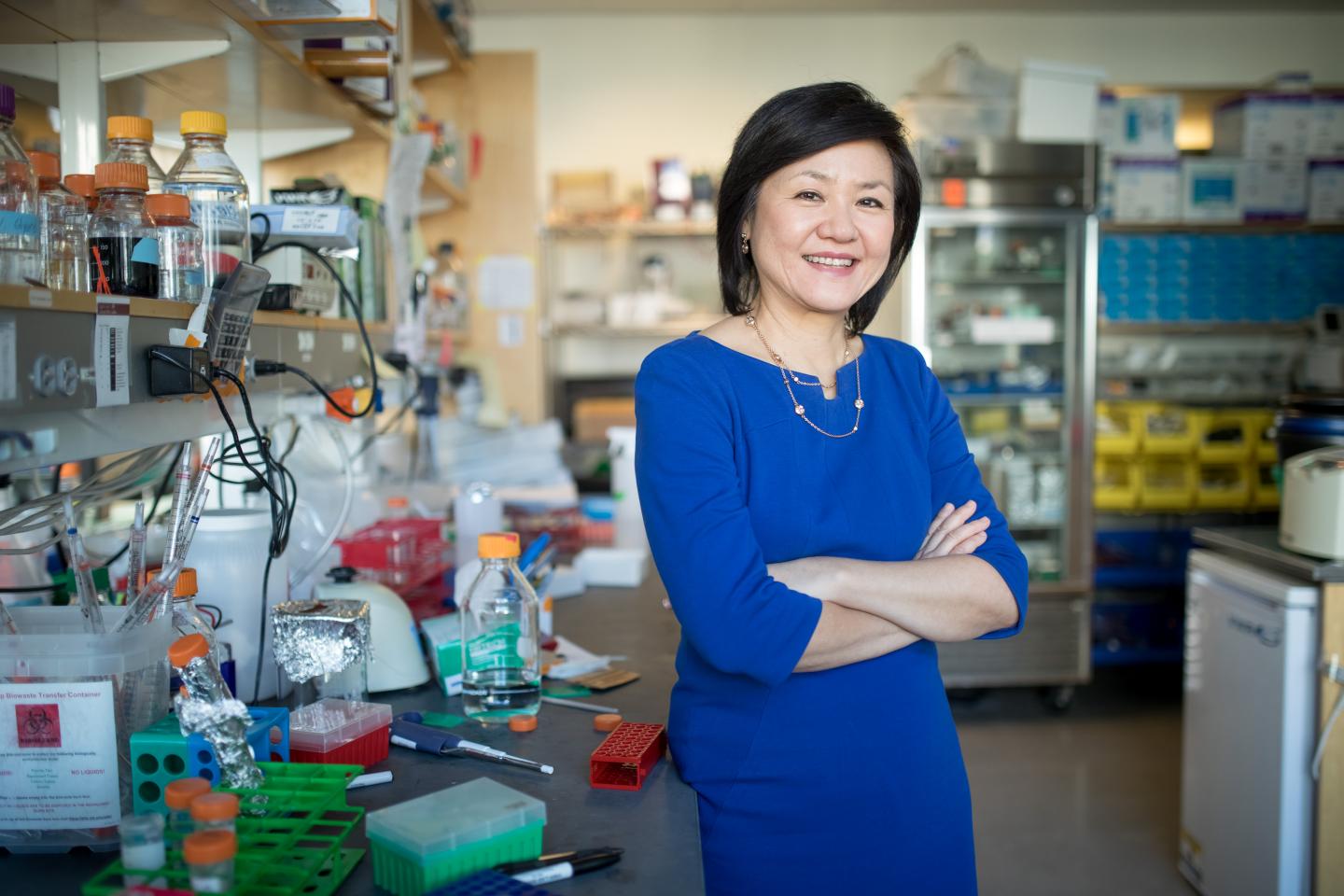Flickering LED lights can reduce beta amyloid plaques in mice

Professor Li-Huei Tsai, director of MIT’s Picower Institute for Learning and Memory. Photo by Bryce Vickmark.
The Jane Coffin Childs Fund is pleased to welcome Dr. Li-Huei Tsai, professor of neuroscience at MIT, to the JCC Board of Scientific Advisors. Tsai joins Sandra Schmid, Catherine Dulac, and Ralph Isberg as new members of the BSA this year.
Tsai recently discovered that visual stimulation reduces beta amyloid plaques in mouse models of Alzheimer’s Disease. The findings were published in Nature.
The presence of beta amyloid plaques in the brain and disrupted brain waves known as gamma oscillations are hallmarks of Alzheimer’s Disease. For this study, Tsai and her colleagues exposed mice with varying degrees of disease development to flickering LED lights. They found that light flickering at a specific frequency –40 hertz– induced gamma oscillations, suppressing beta amyloid production and stimulating cells that destroy plaques within the mouse visual cortex.
“The bottom line is, enhancing gamma oscillations in the brain can do at least two things to reduce amyloid load. One is to reduce beta amyloid production from neurons. And second is to enhance the clearance of amyloid by microglia,” Tsai says.
Next, Tsai and her colleagues plan to test how long reductions in beta amyloid last, if the reductions influence behavior, if light can drive oscillations beyond the visual cortex, if other sensory modalities can be stimulated to induce gamma oscillations, and if the treatment can be beneficial for other neurological disorders.
“The ultimate goal is to see if humans react similarly,” says Tsai, excited about the potential for this treatment in humans. “It’s a big ‘if’ because so many things have been shown to work in mice, only to fail in humans. But if humans behave similarly to mice in response to this treatment, I would say the potential is just enormous, because it’s so noninvasive, and it’s so accessible.” To explore the possibility, Tsai and her coauthor Ed Boyden started the company Cognito Therapeutics.
Tsai was born in Taipei to a family with limited resources, and she recalls playing in the dirt and climbing trees because her family had virtually no toys. But her parents valued education, hard work — and books. Tsai was always drawn to books about animals, insects, the universe, and other science topics. “I could read the books over and over and always be fascinated by them,” she says. “When I think about my childhood, I realize my passion for science has always been very very deeply rooted.”
Tsai says she is honored to join the JCC Board of Scientific Advisors. “The Fund has done a fabulous job of supporting young scientists,” she says.